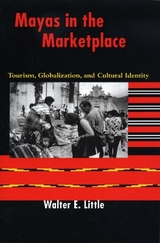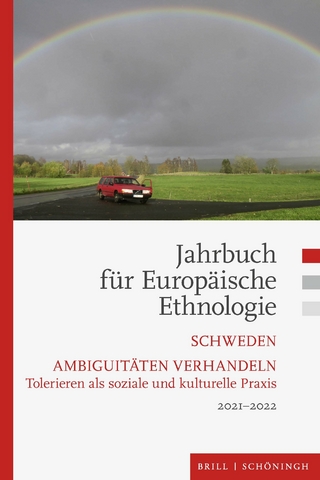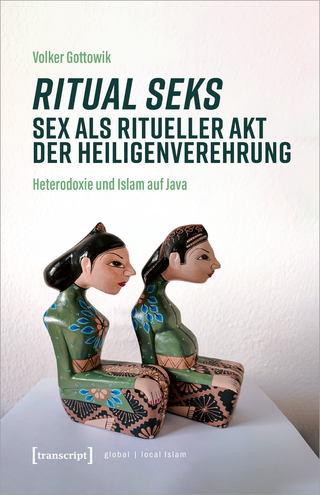
Mayas in the Marketplace
Tourism, Globalization, and Cultural Identity
Seiten
2004
University of Texas Press (Verlag)
978-0-292-70278-3 (ISBN)
University of Texas Press (Verlag)
978-0-292-70278-3 (ISBN)
- Titel erscheint in neuer Auflage
- Artikel merken
Zu diesem Artikel existiert eine Nachauflage
Presents the ethnographic study of Maya handicraft vendors in the international marketplace.
Selling handicrafts to tourists has brought the Maya peoples of Guatemala into the world market. Vendors from rural communities now offer their wares to more than 500,000 international tourists annually in the marketplaces of larger cities such as Antigua, Guatemala City, Panajachel, and Chichicastenango. Like businesspeople anywhere, Maya artisans analyze the desires and needs of their customers and shape their products to meet the demands of the market. But how has adapting to the global marketplace reciprocally shaped the identity and cultural practices of the Maya peoples? Drawing on over a decade of fieldwork, Walter Little presents the first ethnographic study of Maya handicraft vendors in the international marketplace. Focusing on Kaqchikel Mayas who commute to Antigua to sell their goods, he explores three significant issues: * how the tourist marketplace conflates global and local distinctions. * how the marketplace becomes a border zone where national and international, developed and underdeveloped, and indigenous and non-indigenous come together. * how marketing to tourists changes social roles, gender relationships, and ethnic identity in the vendors' home communities.
Little's wide-ranging research challenges our current understanding of tourism's negative impact on indigenous communities. He demonstrates that the Maya are maintaining a specific, community-based sense of Maya identity, even as they commodify their culture for tourist consumption in the world market.
Selling handicrafts to tourists has brought the Maya peoples of Guatemala into the world market. Vendors from rural communities now offer their wares to more than 500,000 international tourists annually in the marketplaces of larger cities such as Antigua, Guatemala City, Panajachel, and Chichicastenango. Like businesspeople anywhere, Maya artisans analyze the desires and needs of their customers and shape their products to meet the demands of the market. But how has adapting to the global marketplace reciprocally shaped the identity and cultural practices of the Maya peoples? Drawing on over a decade of fieldwork, Walter Little presents the first ethnographic study of Maya handicraft vendors in the international marketplace. Focusing on Kaqchikel Mayas who commute to Antigua to sell their goods, he explores three significant issues: * how the tourist marketplace conflates global and local distinctions. * how the marketplace becomes a border zone where national and international, developed and underdeveloped, and indigenous and non-indigenous come together. * how marketing to tourists changes social roles, gender relationships, and ethnic identity in the vendors' home communities.
Little's wide-ranging research challenges our current understanding of tourism's negative impact on indigenous communities. He demonstrates that the Maya are maintaining a specific, community-based sense of Maya identity, even as they commodify their culture for tourist consumption in the world market.
Walter E. Little is Assistant Professor of Anthropology at the University of Albany, State University of New York.
Introduction: Subjectivity and Fieldwork among Kaqchikel Vendors 1. Guatemala as a Living History Museum 2. Place and People in a Transnational Borderzone City 3. Antigua Tipica Markets and Identity Interaction 4. Mercado de Artesania Compania de Jesus and the Politics of Vending 5. Gendered Marketplace and Household Reorganization 6. The Places Kaqchikel Maya Vendors Call Home 7. Home as a Place of Exhibition and Performance in San Antonio Aguas Calientes 8. Marketing Maya Culture in Santa Catarina Palopo Conclusion: Traditions and Commodities
| Zusatzinfo | 13 b&w illus., 4 maps, 2 figures |
|---|---|
| Verlagsort | Austin, TX |
| Sprache | englisch |
| Maße | 152 x 229 mm |
| Gewicht | 581 g |
| Themenwelt | Sozialwissenschaften ► Ethnologie ► Völkerkunde (Naturvölker) |
| Sozialwissenschaften ► Soziologie | |
| Wirtschaft | |
| ISBN-10 | 0-292-70278-7 / 0292702787 |
| ISBN-13 | 978-0-292-70278-3 / 9780292702783 |
| Zustand | Neuware |
| Haben Sie eine Frage zum Produkt? |
Mehr entdecken
aus dem Bereich
aus dem Bereich
Schweden : Ambiguitäten verhandeln - Tolerieren als soziale und …
Buch | Softcover (2023)
Brill Schöningh (Verlag)
49,90 €
Buch | Softcover (2023)
transcript (Verlag)
54,00 €



